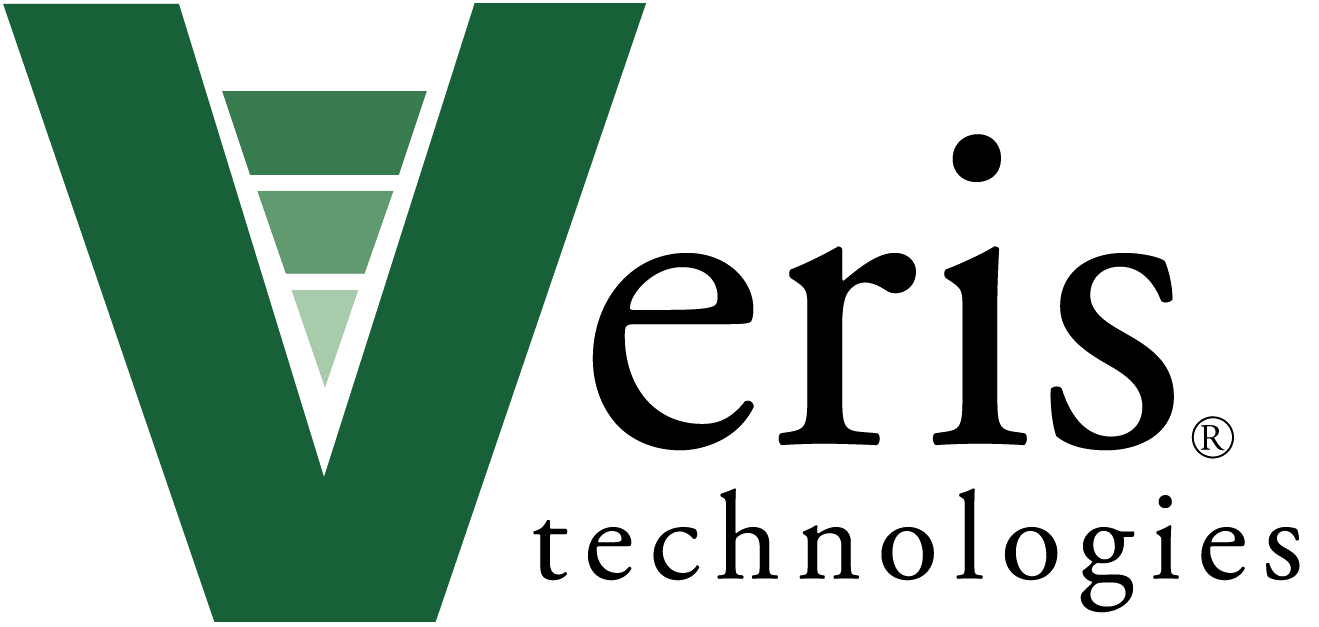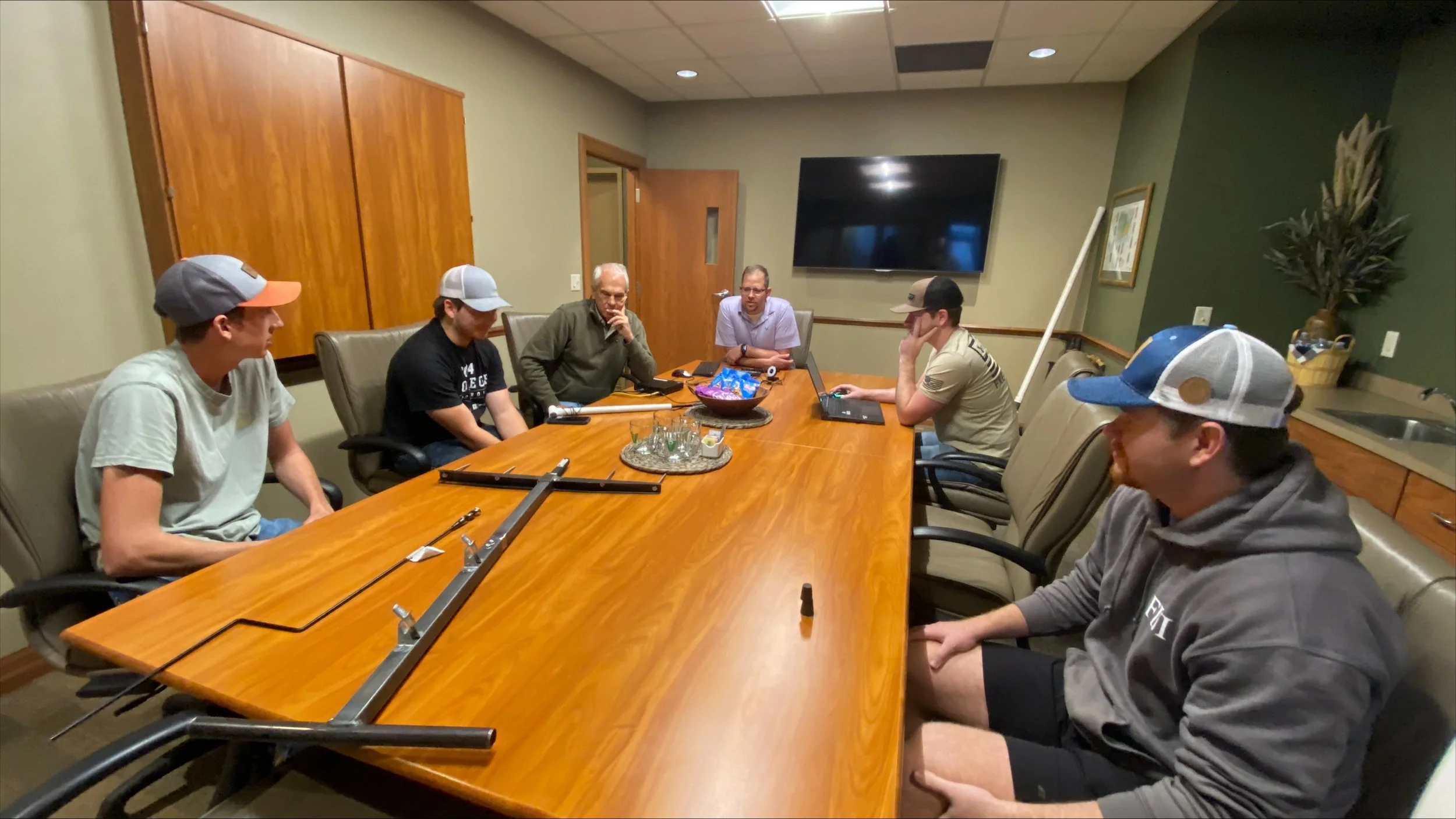Veris Pioneers Affordable Soil Sensors for Smallholder Farmers
In a world where agriculture serves as the backbone of countless communities, empowering smallholder farmers with affordable and effective tools has never been more important. Veris Technologies, a leader in agricultural innovation, is taking bold steps to revolutionize soil mapping. By working closely with a team of ambitious Kansas State University students, Veris is developing the next generation of human-powered soil sensors designed to bring precision agriculture to farmers around the globe.
Veris Founder, Eric Lund, meeting with KSU Student team.
Eric Lund, founder of Veris, shares his excitement about this collaboration: “It has been great to work with this team. They’ve taken what we learned from our earlier prototypes and expanded on it to produce a promising design.” With a shared commitment to making a tangible impact, the Veris and Kansas State University teams are proving how partnerships between industry leaders and academic institutions can drive change for underserved communities.
The Vision: Accessible Soil Mapping for All Farmers
Precision agriculture often relies on advanced tools that are prohibitively expensive for smallholder farmers. This economic barrier leaves millions of farmers unable to access critical data about their soil's health—information essential for optimizing crop yields and ensuring sustainable farming practices. Veris Technologies aims to address this issue head-on.
“We want to make soil mapping accurate, affordable, and accessible,” says Eric Lund. The Veris approach combines innovative engineering with an understanding of the unique challenges smallholder farmers face, particularly in resource-limited settings. By focusing on human-powered devices, the company ensures that these tools can function in regions where electricity and other resources are scarce. This vision is not just about technology but about breaking down barriers to agricultural success.
The Collaboration with Kansas State University
The latest chapter in Veris’ mission involves a dynamic partnership with Kansas State University. Under the guidance of Dr. Ed Brokesh, a group of engineering and agricultural technology students—Cole Stahlman, Tyler Hommertzheim, Alex Benson, and Mitch Bryan—have joined forces with Veris engineers Chase and Kyle to develop a cutting-edge soil sensor prototype. Their work exemplifies the power of collaboration, blending fresh academic perspectives with Veris’ industry expertise.
Eric Lund highlights the rewarding nature of the partnership: “The interactions with the KSU team and our engineers have been very rewarding.” Together, the teams have refined earlier prototypes, creating a new design that promises to make soil mapping more practical and accessible for smallholder farmers. The Kansas State University students have played an integral role, bringing innovative ideas and enthusiasm to the table, ensuring the project is both impactful and forward-thinking.
This partnership also demonstrates the value of experiential learning, offering students hands-on opportunities to solve real-world challenges. Their contributions are set to inspire a new generation of agronomists and engineers eager to make a difference in global agriculture.
Building on Past Success: Veris’ Work in Kenya
Veris Technologies’ current efforts build on a strong foundation of success in similar projects. A notable example is its work in Kenya, where the company collaborated with Swedish researchers to enhance soil mapping methods for smallholder farmers. This groundbreaking project, detailed in a study published on PubMed, involved mapping soil properties to provide actionable data for improving agricultural practices.
Eric Lund collecting soil data near Embu, Kenya Eric Lund during the Kenya soil mapping project.
The Kenya project demonstrated how localized soil data could empower farmers to make informed decisions, such as optimizing fertilizer use and improving crop rotation strategies. By focusing on accurate and accessible soil property measurements, Veris and its partners helped farmers achieve better yields while maintaining soil health. These insights have directly influenced the design and goals of the current collaboration with Kansas State University, ensuring that the new soil sensors address the challenges faced by farmers in similar regions.
“The lessons we learned in Kenya were invaluable,” says Eric Lund. “They taught us the importance of creating tools that are not only accurate but also affordable and easy to use in diverse agricultural settings.”
Human-Powered Soil Sensors: The Next Generation
At the heart of Veris’ innovation is the development of human-powered soil sensors, a game-changer for farmers with limited access to electricity or high-tech machinery. These devices are designed to be lightweight, cost-effective, and easy to operate, ensuring they meet the needs of smallholder farmers around the world.
The new prototype, developed in collaboration with Kansas State University students, builds upon Veris’ earlier designs with enhancements that improve both accuracy and usability. By utilizing human power, these sensors can operate in off-grid environments, making them ideal for regions where infrastructure is limited. This approach ensures that even farmers in remote areas can access reliable soil data.
“Innovation doesn’t always mean complexity,” explains Eric Lund. “Sometimes the simplest solutions are the most impactful. These human-powered sensors exemplify that principle.” The new design aims to democratize access to soil health data, enabling smallholder farmers to make science-based decisions that improve productivity and sustainability.
Expanding Opportunities for Smallholder Farmers
Smallholder farmers form the backbone of agricultural production in many developing countries, yet they often face significant challenges in accessing the tools and knowledge necessary to optimize their practices. By providing affordable and user-friendly soil sensors, Veris is addressing a critical need in these communities.
Access to precise soil data allows farmers to use fertilizers more efficiently, select crops that are better suited to their soil, and implement sustainable farming practices that enhance long-term productivity. This can lead to increased yields, reduced costs, and improved livelihoods for farmers and their families. For many, these tools represent a pathway out of subsistence farming and into greater economic stability.
Veris’ innovations also have broader implications for global food security and climate resilience. By empowering smallholder farmers to improve soil health, these tools contribute to sustainable agricultural practices that reduce environmental impact and enhance the resilience of farming systems in the face of climate change.
A Look Ahead: The African Conference on Precision Agriculture
As the year comes to a close, Veris and its Kansas State University collaborators are preparing to unveil their prototype at the African Conference on Precision Agriculture in December. This global event provides a platform to showcase the latest advancements in agricultural technology and exchange ideas with researchers, practitioners, and innovators from around the world.
For Veris, the conference is more than an opportunity to demonstrate new technology—it’s a chance to reaffirm its commitment to making precision agriculture accessible to all. By focusing on the needs of smallholder farmers, Veris hopes to inspire others in the industry to prioritize innovation that addresses real-world challenges in agriculture. Veris would like to especially thank K-Globe (Kansas Global Business Expansion) for supporting our team and helping us attend this conference.
The Bigger Picture: Inspiring the Next Generation of Innovators
Beyond the immediate impact of their work, Veris and its Kansas State University collaborators are setting an example for future innovators. Their project highlights the value of collaboration between academia and industry, showing how partnerships can lead to meaningful advancements in technology.
For the Kansas State University students involved, the project has provided invaluable experience working on solutions that have the potential to change lives. “This collaboration has been incredibly inspiring,” says Eric Lund. “It’s exciting to see these young engineers and agronomists tackle challenges with such passion and creativity.”
As Veris continues to innovate, it also hopes to encourage the next generation to join the effort, bringing fresh ideas and enthusiasm to the global agricultural community.
Conclusion
Veris Technologies’ collaboration with Kansas State University represents a significant step forward in making soil mapping more accessible and affordable for smallholder farmers worldwide. By drawing on lessons from past projects, like their work in Kenya, and leveraging the creativity of young innovators, Veris is delivering solutions that can make a lasting impact.
As the company prepares to showcase its prototype at the African Conference on Precision Agriculture, the message is clear: innovation is about more than just technology—it’s about people, partnerships, and a commitment to creating a better future for farmers everywhere.





